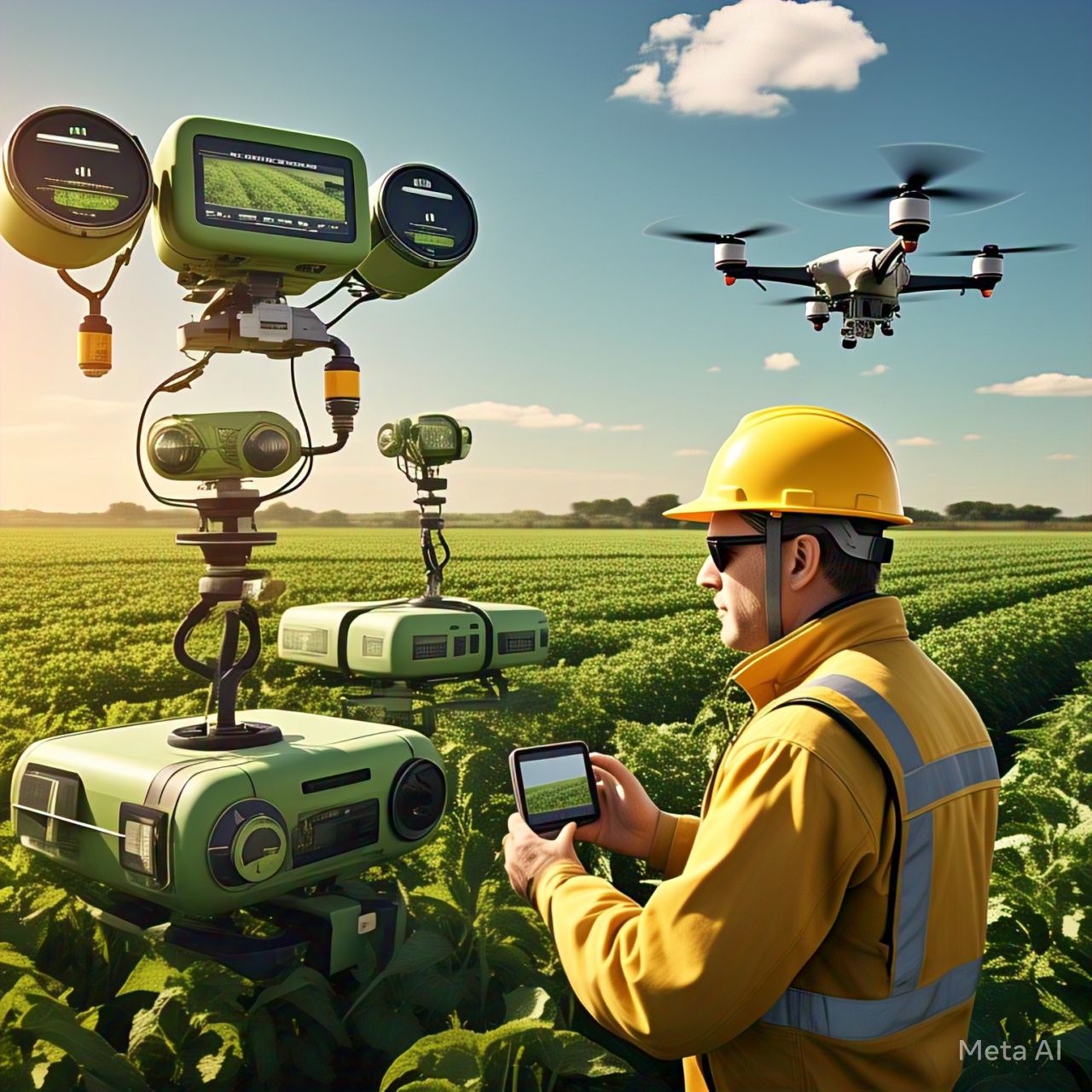Introduction
As the global population continues to rise, the demand for food production is increasing at an unprecedented rate. Artificial Intelligence (AI) is emerging as a transformative force in agriculture, offering innovative solutions to enhance productivity, sustainability, and efficiency. By leveraging smart technology, AI is helping farmers optimize resources, reduce waste, and ensure food security for future generations.
The Role of AI in Modern Agriculture
AI-powered solutions are revolutionizing various aspects of agriculture, from crop management to livestock monitoring. Some of the key applications include:
1. Precision Farming
AI enables farmers to optimize crop yields through data-driven decision-making. By using machine learning algorithms, farmers can analyze soil health, weather patterns, and crop conditions to apply the right amount of water, fertilizers, and pesticides, reducing waste and maximizing efficiency.
2. Smart Irrigation Systems
AI-powered irrigation systems use real-time data and predictive analytics to regulate water usage efficiently. These systems monitor soil moisture levels and weather conditions to ensure that crops receive the necessary hydration without overuse of resources.
3. Pest and Disease Detection
AI-driven image recognition and machine learning models help detect early signs of plant diseases and pest infestations. Farmers can take timely action, preventing large-scale crop damage and reducing reliance on chemical pesticides.
4. Livestock Monitoring
AI-powered sensors and cameras can track the health and behavior of livestock in real time. By analyzing movement patterns, feeding habits, and vital signs, farmers can detect illnesses early, improve animal welfare, and enhance productivity.
5. Automated Machinery and Robotics
Autonomous tractors, drones, and robotic harvesters equipped with AI technology are streamlining labor-intensive tasks. These machines help reduce dependency on manual labor, increase efficiency, and improve overall farm management.
Benefits of AI in Agriculture
AI-driven agricultural technologies offer several benefits, including:
- Increased Efficiency: AI automates various farming processes, reducing manual labor and saving time.
- Enhanced Sustainability: Precision farming techniques help minimize resource wastage and environmental impact.
- Improved Crop Yields: AI-powered data analysis enables better decision-making, leading to higher crop productivity.
- Cost Reduction: Optimized use of water, fertilizers, and pesticides reduces operational costs for farmers.
- Food Security: AI aids in meeting the growing food demand by ensuring efficient and sustainable food production.
Challenges and Ethical Considerations
Despite its potential, AI in agriculture faces several challenges:
- High Implementation Costs: Small-scale farmers may struggle to afford AI-powered technologies.
- Data Privacy Concerns: The collection and use of agricultural data raise privacy and security issues.
- Technological Barriers: Many rural areas lack the necessary infrastructure for AI adoption.
- Job Displacement: Automation may reduce the need for human labor, impacting agricultural employment.
The Future of AI in Agriculture
As AI continues to evolve, its integration with agriculture is expected to expand further. Future developments may include more advanced AI-powered drones, real-time soil monitoring systems, and AI-driven food supply chain optimization. Governments and private sectors must work together to ensure that AI adoption in agriculture remains inclusive, affordable, and sustainable.
Conclusion
AI is playing a crucial role in transforming agriculture, making it more efficient, sustainable, and capable of feeding the world’s growing population. While challenges exist, the benefits far outweigh the drawbacks. By leveraging smart technology, AI is paving the way for a future where food production is optimized, waste is minimized, and global food security is strengthened.





